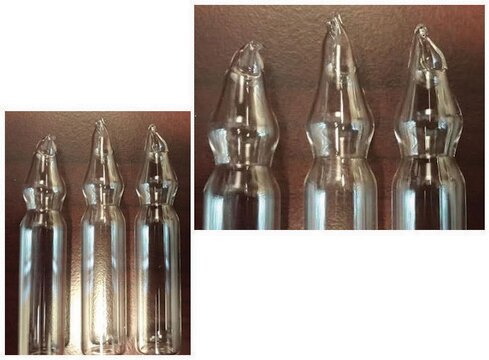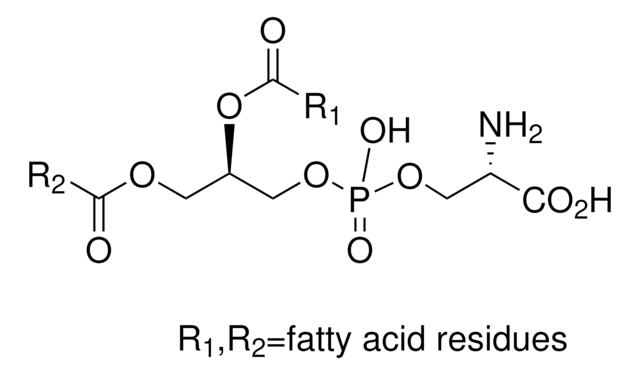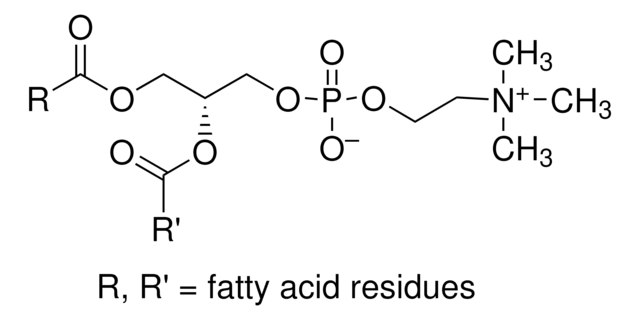840039C
Avanti
18:0-18:1 PS
1-stearoyl-2-oleoyl-sn-glycero-3-phospho-L-serine (sodium salt), chloroform
Synonym(s):
1-octadecanoyl-2-(9Z-octadecenoyl)-sn-glycero-3-phospho-L-serine (sodium salt); SOPS; PS(18:0/18:1(9Z)); 110672
About This Item
Recommended Products
assay
>99% (TLC)
form
liquid
packaging
pkg of 1 × 1 mL (840039C-10mg)
manufacturer/tradename
Avanti Polar Lipids 840039C
concentration
10 mg/mL (840039C-10mg)
lipid type
phospholipids
shipped in
dry ice
storage temp.
−20°C
SMILES string
[H][C@@](COP([O-])(OC[C@](C([O-])=O)([H])[NH3+])=O)(OC(CCCCCCC/C=C\CCCCCCCC)=O)COC(CCCCCCCCCCCCCCCCC)=O.[Na+]
InChI
1S/C42H80NO10P.Na/c1-3-5-7-9-11-13-15-17-19-21-23-25-27-29-31-33-40(44)50-35-38(36-51-54(48,49)52-37-39(43)42(46)47)53-41(45)34-32-30-28-26-24-22-20-18-16-14-12-10-8-6-4-2;/h18,20,38-39H,3-17,19,21-37,43H2,1-2H3,(H,46,47)(H,48,49);/q;+1/p-1/b20-18-;/t38-,39+;/m1./s1
InChI key
ALPKKMIPHGSQRX-NJZWBUMZSA-M
General description
Application
- in the preparation of liposomes
- for liposome binding assays
- to generate multilamellar phospholipid vesicles
Biochem/physiol Actions
Packaging
Legal Information
signalword
Danger
Hazard Classifications
Acute Tox. 3 Inhalation - Acute Tox. 4 Oral - Aquatic Chronic 3 - Carc. 2 - Eye Irrit. 2 - Repr. 2 - Skin Irrit. 2 - STOT RE 1 - STOT SE 3
target_organs
Central nervous system
Storage Class
6.1D - Non-combustible, acute toxic Cat.3 / toxic hazardous materials or hazardous materials causing chronic effects
wgk_germany
WGK 3
Certificates of Analysis (COA)
Search for Certificates of Analysis (COA) by entering the products Lot/Batch Number. Lot and Batch Numbers can be found on a product’s label following the words ‘Lot’ or ‘Batch’.
Already Own This Product?
Find documentation for the products that you have recently purchased in the Document Library.
Our team of scientists has experience in all areas of research including Life Science, Material Science, Chemical Synthesis, Chromatography, Analytical and many others.
Contact Technical Service







